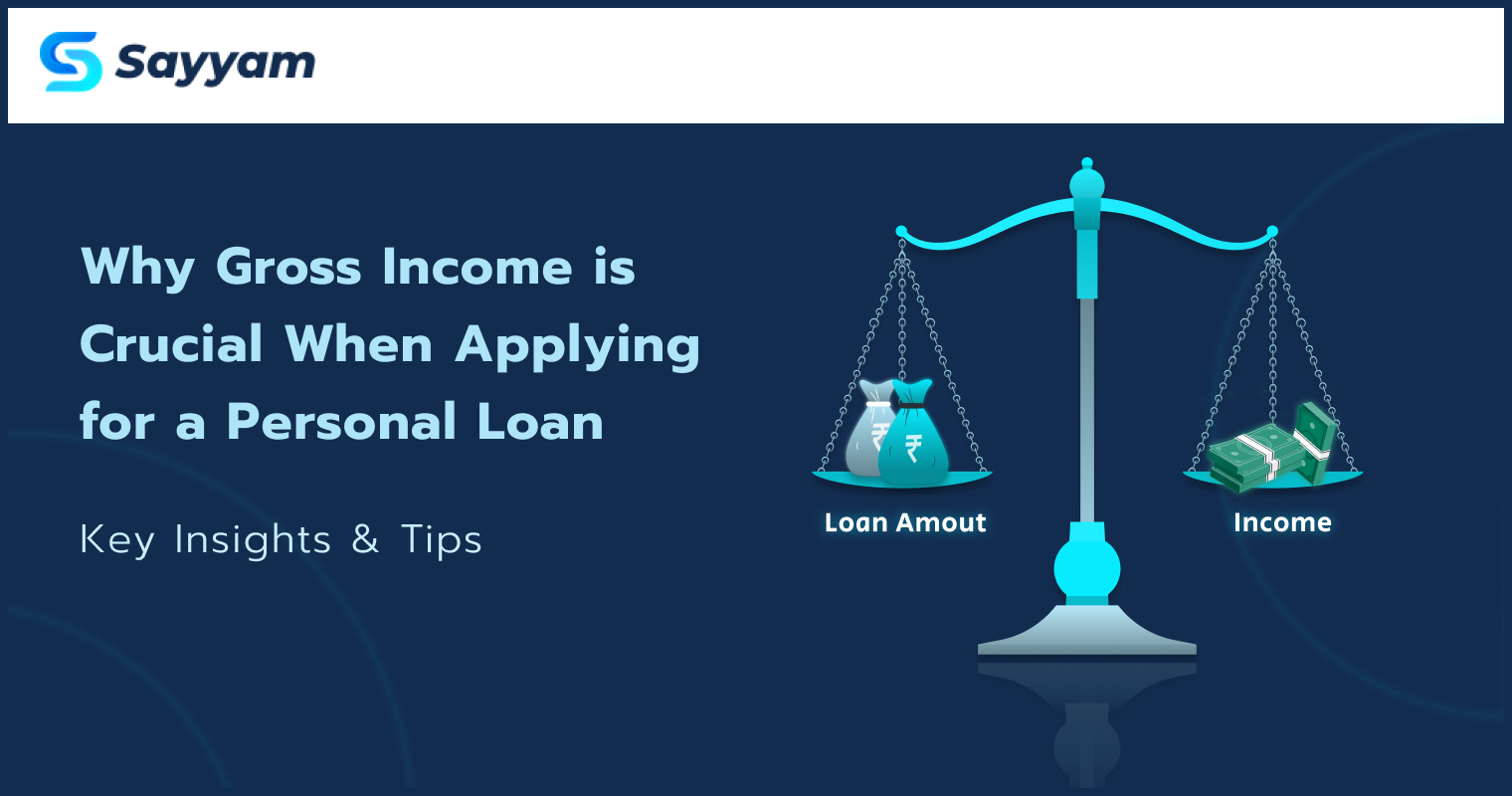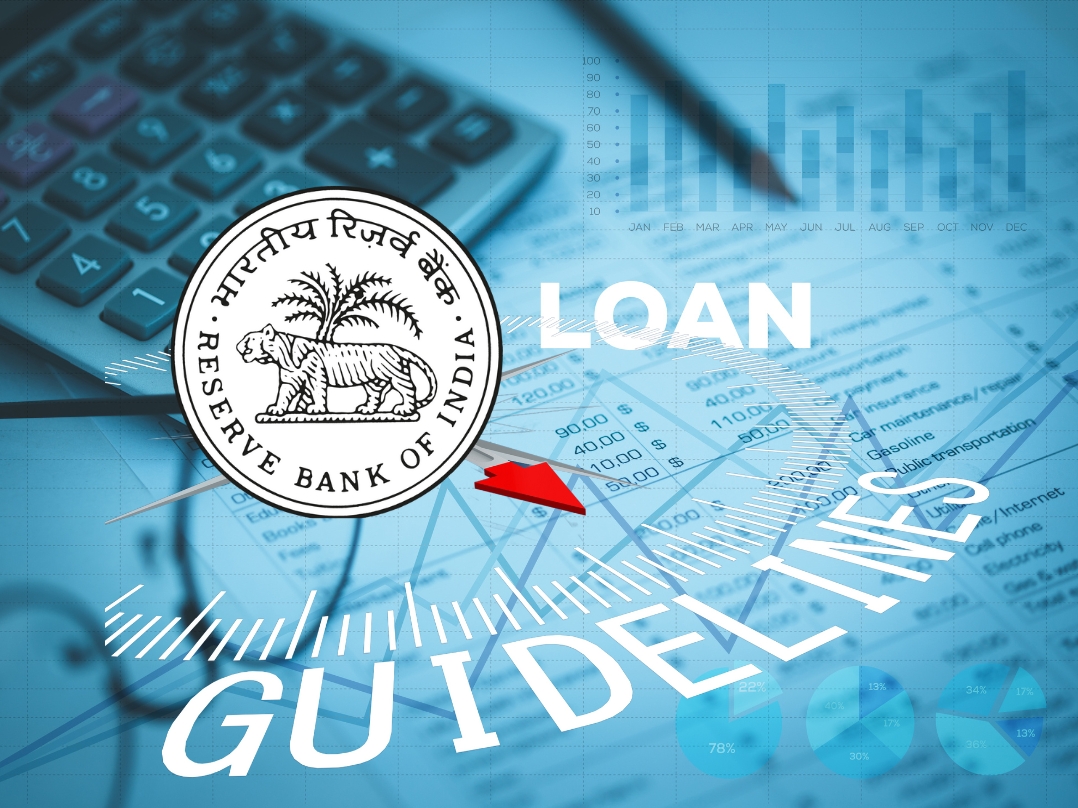
Why Gross Income is Crucial When Applying for a Personal Loan: Key Insights and Tips
Introduction
Everyone knows what a personal loan is. Going by words, personal loans are unsecured loans provided by financial institutions to individuals for various personal needs. Some of these include medical emergencies, home renovations, weddings, and even debt consolidation. In India, personal loans have gained popularity due to their flexibility and quick approval process. Also, the borrowers can use the funds for multiple purposes.
Today, we’ll see the significance of gross income in the personal loan approval process. Let’s start by understanding gross income first.
Understanding Gross Income
In simple words, gross income refers to the total income earned by an individual before any deductions. These deductions include taxes, provident fund, and insurance premium, if any. The gross income covers salaries, bonuses, rental income, interest income, and any other earnings. To make it simpler, gross income is the amount of money a person earns before any deductions are made.
Differences Between Gross and Net Income
Now you know that gross income is the total earnings before deductions. Net income, on the other hand, is the amount that remains after all the deductions have been made. For example, an individual has a gross income of ₹50,000 per month and deductions amounting to ₹10,000. The net income of the individual would be ₹40,000. Lenders often look at both gross and net incomes when assessing an individual’s ability to repay a loan. But gross income plays a more critical role in the initial stages of the application.
Importance of Gross Income for Personal Loan Approval
Gross income is a crucial factor for lenders when evaluating personal loan applications. Here’s why:
• Assessment of Repayment Capacity:
Gross income provides lenders with an idea of the borrower’s total earning capacity. This helps lenders in determining the borrower’s ability to repay the loan. A higher gross income indicates a better ability to manage and repay loan installments without defaulting.
• Determining Loan Amount:
The amount of loan sanctioned is often a percentage of the applicant’s gross income. Lenders use gross income to set a maximum loan limit.
• Eligibility Criteria:
Most financial institutions have a minimum gross income requirement that applicants must meet to qualify for a personal loan. This threshold varies from one lender to another, and meeting this criterion is the first step toward getting a loan.
• Interest Rates and Tenure:
Gross income also influences the interest rate and loan tenure offered by the lender. Individuals with higher gross incomes may be offered lower interest rates and more favorable terms.
Various Aspects of Personal Loan Impacted by Gross Income
1. Personal Loan Eligibility Factors:
Lenders evaluate several factors before approving a personal loan. And, gross income is one of the primary personal loan eligibility factors. It helps lenders determine the borrower’s financial stability and repayment capacity.
2. Gross Income and Loan Approval:
Gross income and loan approval are closely linked. A higher gross income improves the chances of loan approval as it reassures the lender about the borrower’s repayment ability.
3. Personal Loan Requirements:
Financial institutions, including banks and NBFCs (Non-Banking Financial Companies), have specific personal loan requirements. These include a minimum gross income level, a stable employment history, and a good credit score.
4. Gross Income Significance in Loan Processing:
The significance of gross income in the loan processing stage cannot be overstated. It influences not only the approval decision but also the terms and conditions of the loan. For instance, applicants with higher gross incomes might receive better interest rates and longer repayment periods.
5. Impact on Loan Amount and Tenure:
Gross income impacts personal loan eligibility in terms of the loan amount and tenure. A higher gross income can lead to a higher loan amount being sanctioned. Also, the possibility of a longer repayment tenure increases with higher gross income.
6. Role in Personal Loan from NBFC:
NBFCs often have different criteria compared to traditional banks. While they may offer more flexible terms, gross income still plays a crucial role in determining eligibility and loan terms. For those seeking a personal loan from NBFC, showing a stable and sufficient gross income is essential.
7. Online Loan Applications:
With the rise of digital banking, many individuals prefer personal loan apply online. During this process, applicants must provide their gross income details, which are verified through salary slips, bank statements, or tax returns. This step is important for the digital approval process.
8. Influence on Short Term Finance Options:
For short term finance options like personal loans, gross income is a determining factor. Lenders need to ensure that the borrower’s income is sufficient to cover the loan repayment within the short tenure.
9. Sayyam Investments Product Loan App:
Financial products like the Sayyam Investments product loan app also consider gross income during the approval process. This ensures that the applicant has the financial capacity to repay the loan amount in the stipulated time.
Conclusion
Gross income is a fundamental factor in the personal loan approval process in India. It determines eligibility, impacts the loan amount and tenure, and influences the interest rate offered by the lender. Understanding the importance of gross income can improve your chances of securing a personal loan. Whether you are applying through a traditional bank, an NBFC, or an online platform, ensure that you meet the gross income requirements.
FAQ



